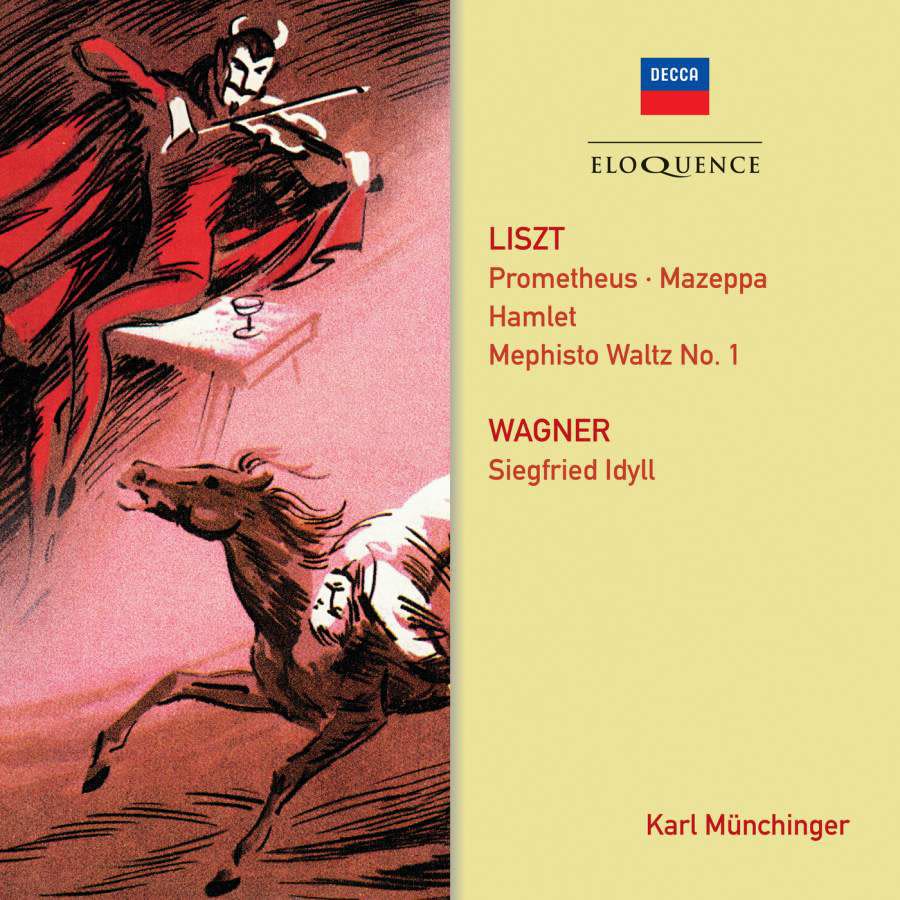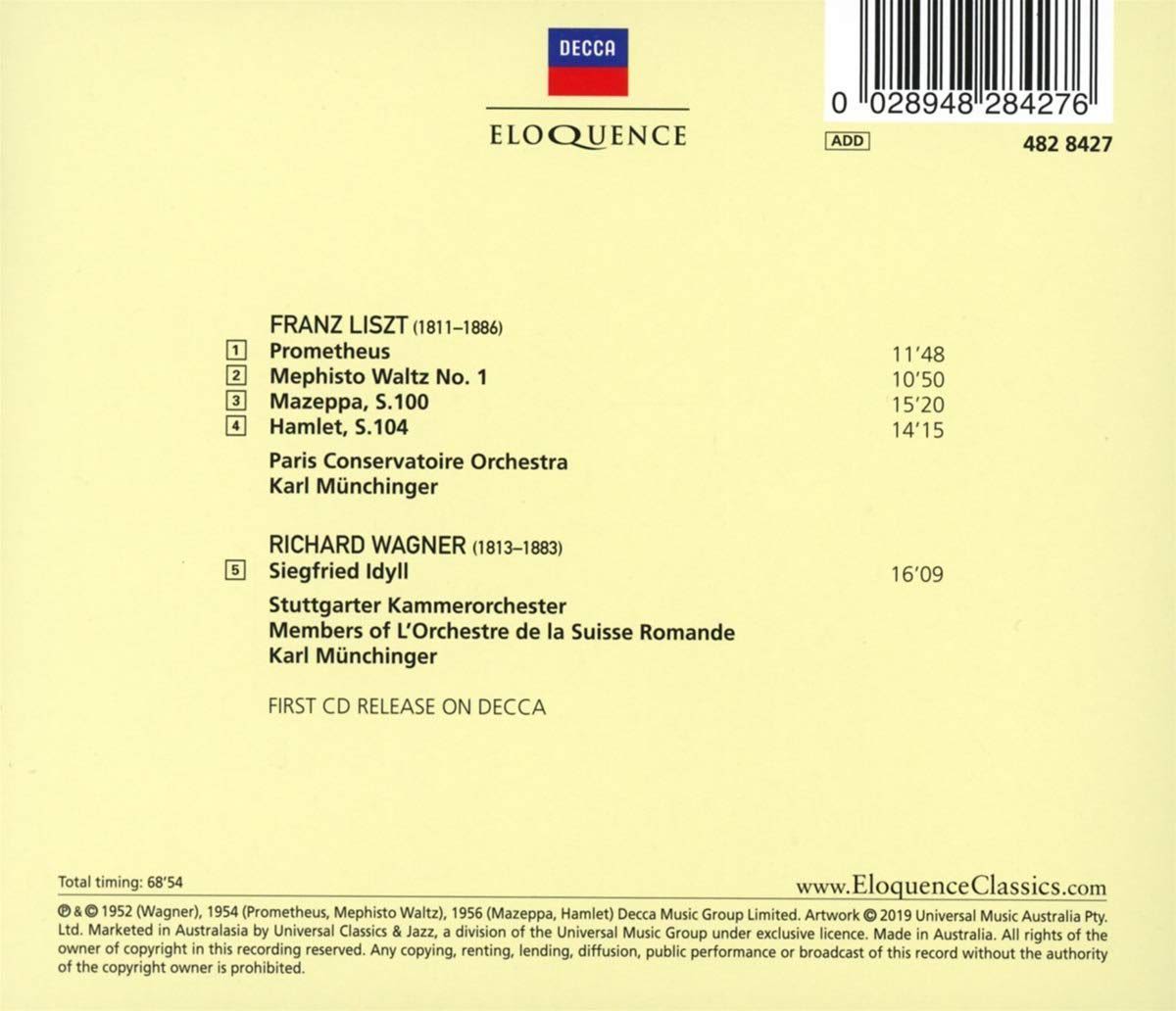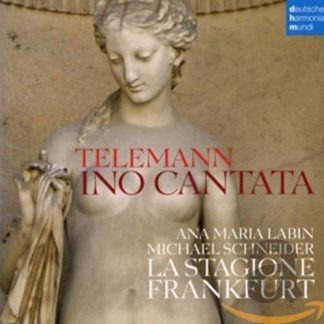Περιγραφή
Καλλιτέχνες
|
FIRST CD RELEASE / FIRST INTERNATIONAL CD RELEASE A quartet of Liszt tone-poem recordings, new to CD, plus a cherishable recording of Wagner’s musical birthday card to his wife. Karl Munchinger founded the Stuttgart Chamber Orchestra in 1946, and Decca began making records with them three years later. The polish and vigour of his work in Baroque repertoire is comprehensively documented by a recent 8CD Eloquence box (4840160), but Munchinger’s repertoire was broader than might be assumed. In addition to their sensitive and stylish interpretation of Haydn and Mozart brought together on another Eloquence box (4840170), the conductor and his Stuttgart ensemble took on Romantic repertoire such as the Siegfried-Idyll of Wagner – a 1951 recording made in Geneva with Munich strings and the winds of the Orchestre de la Suisse Romande. More adventurously, Decca sent Munchinger to Paris, to conduct the Conservatoire Orchestra. A 10-inch EP of the Mephisto Waltz and Prometheus duly appeared, followed by a full LP which coupled the EP with two more tone-poems, Mazeppa and Hamlet. Although Liszt’s orchestral music was more familiar to audiences in the concert hall than it is now, there were comparatively few recordings: this one of Hamlet appears to be the first, but it effectively conveys both the nervous tension of the story and its gloomy setting of Elsinore. M nchinger secures fiery playing from the Paris orchestra and holds a firm grasp on Liszt’s unorthodox structures. Captured in Decca’s dynamic mono sound, the Conservatoire brass make thrilling contributions to the Mephisto Waltz and the climactic celebrations of Mazeppa, while the winds contribute much distinctively French timbre to the more poignant evocations of the sufferings of Prometheus. ‘I have never heard a better recording than this one by the Stuttgart Orchestra… the greatest care and attention is lavished on the music and there is a classical poise and perfection in this interpretation which makes it a very desirable acquisition.’ Irish Monthly, July 1952 (Siegfried Idyll) ‘Fine performances here; and while it may be that Liszt is a little out of date in these works, they continue to exert a rather ghoulish fascination. Liszt was always so Lisztian!’ Gramophone, June 1956 ‘[Mazeppa and Hamlet] match in drama and clarity their two companions, add- ing up to a quartet of fine Liszt interpretations.’ High Fidelity, July 1956 |










